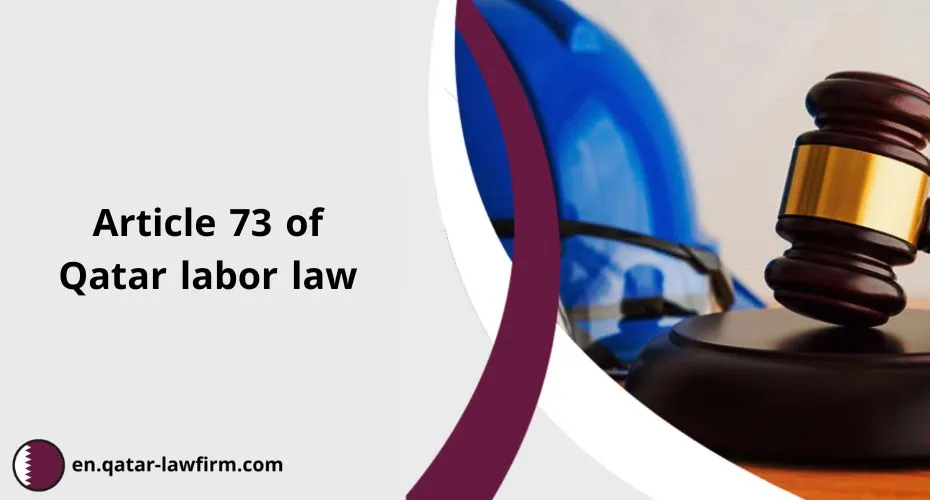Article 73 of Qatar labor law aims to limit overwork, safeguard employee well-being, and ensure that workers are adequately compensated for overtime.
Understanding the specifics of Article 73 is essential for both employers and employees to ensure compliance and protect their rights within Qatar’s legal framework in 2024.
Contact our expert lawyers & legal Consultants in Qatar. Click the Whatsapp icon below.
Table of Contents
Article 73 of Qatar Labor Law for Work Hours
Article 73 of Qatar’s Labor Law sets clear guidelines for regulating employees’ working hours. The standard working hours are capped at 48 hours per week, translating to a maximum of 8 hours per day.
These limits are intended to promote work-life balance and ensure employees are not overworked. However, during the holy month of Ramadan, the law reduces the maximum weekly working hours to 36, or 6 hours per day, to accommodate the physical and spiritual demands of fasting.
Employers must provide at least one hour of rest during the workday, and employees cannot work for more than five consecutive hours without a break. These rest breaks are not counted towards the total working hours.
Additionally, time spent commuting to and from work is excluded from the working hours.
Certain exemptions apply to Article 73. For example, managerial employees, security guards, and those engaged in preparatory tasks that must be done outside regular hours may not be subject to the same limits.
These roles are often vital for the smooth operation of a business, hence the flexibility in their schedules. However, for regular employees, working hours beyond these limits qualify for overtime compensation at a rate of at least 125% of the basic hourly wage.
Legal Services Related to Working Hours Regulations in Qatar
Our lawyer in Qatar provides services tailored to Article 73 of Qatar’s Labor Law.
Our experienced legal team can assist employers and employees in ensuring compliance with working hours regulations, preparing contracts that respect labor rights, and addressing any violations of overtime or rest periods.
We offer legal consultation on the following:
- Drafting compliant employment contracts.
- Resolving disputes related to excessive working hours or insufficient breaks.
- Advising on the legal exemptions that may apply to specific roles.
- Assisting with claims related to unpaid overtime or wrongful denial of rest days.
By working closely with our clients, we ensure that businesses operate within the law, that employees are treated fairly, and that they receive the compensation they are entitled to.
We help employers mitigate the risk of legal disputes by providing proactive compliance checks and contractual reviews. We also provide legal representation in cases of non-compliance to safeguard employees’ rights under Article 73.
Find legal services from Top Labour Lawyers in Qatar.
FAQs about Qatar labor law article 73
Conclusion.
Understanding and adhering to Article 73 of Qatar Labor Law is essential for employers and employees to maintain a lawful and productive workplace.
This article promotes a fair working environment by regulating working hours, enforcing proper overtime compensation, and ensuring rest periods. Our law firm is dedicated to helping clients navigate these legal frameworks, ensuring compliance, and resolving disputes efficiently.
Contact our lawyers in Qatar and get expert help. Click the WhatsApp icon below.

A law graduate specializes in translating complex legal matters into clear, actionable insights, enabling individuals and businesses to navigate Qatar’s multifaceted legal landscape.
